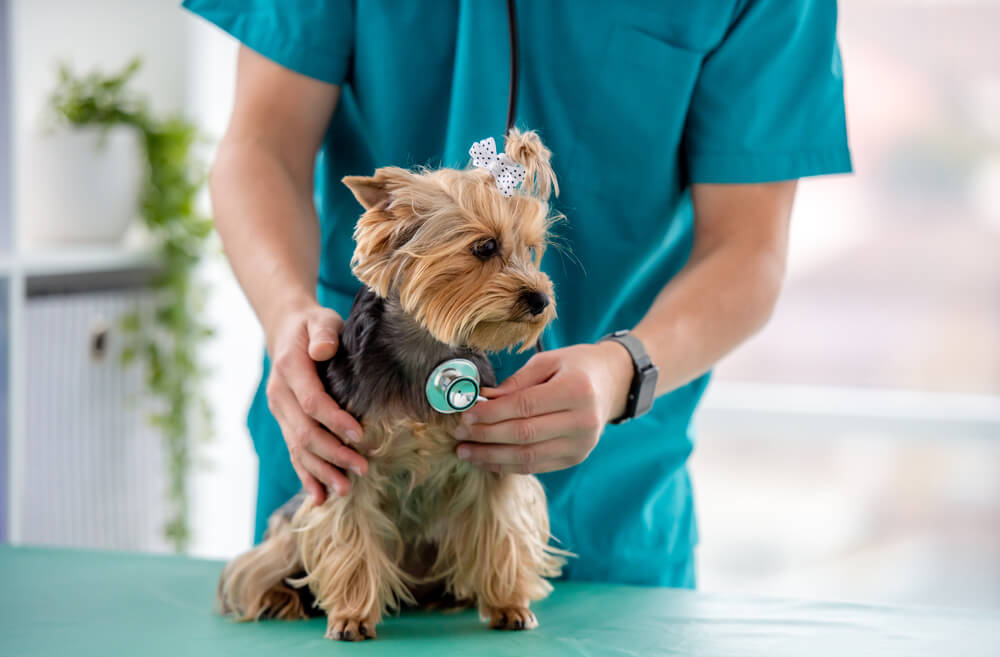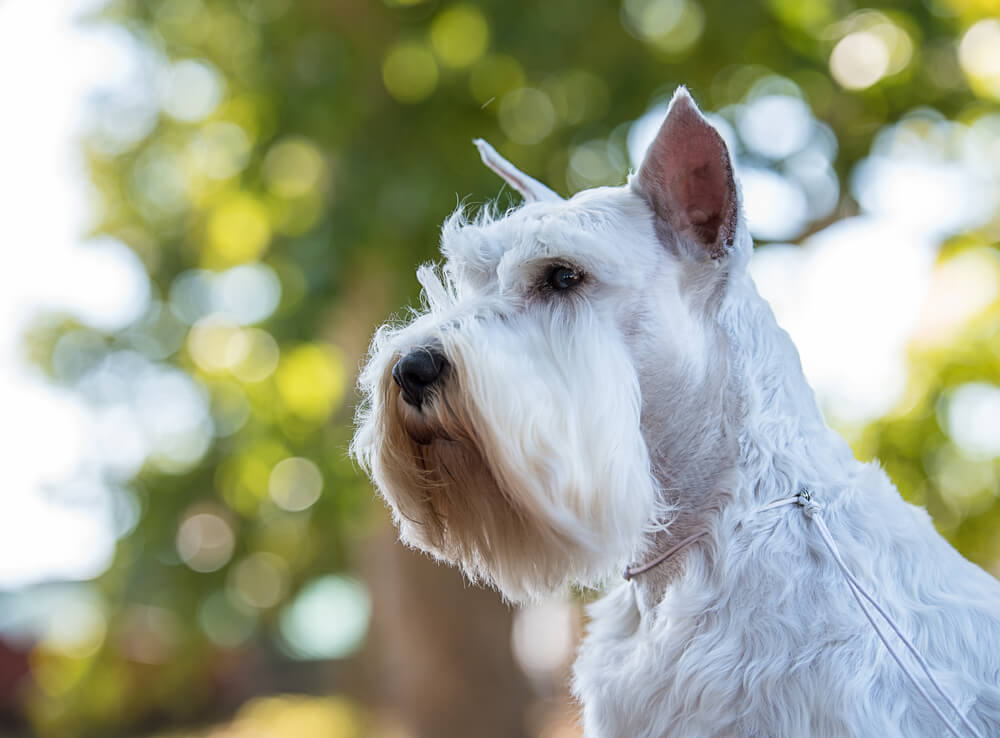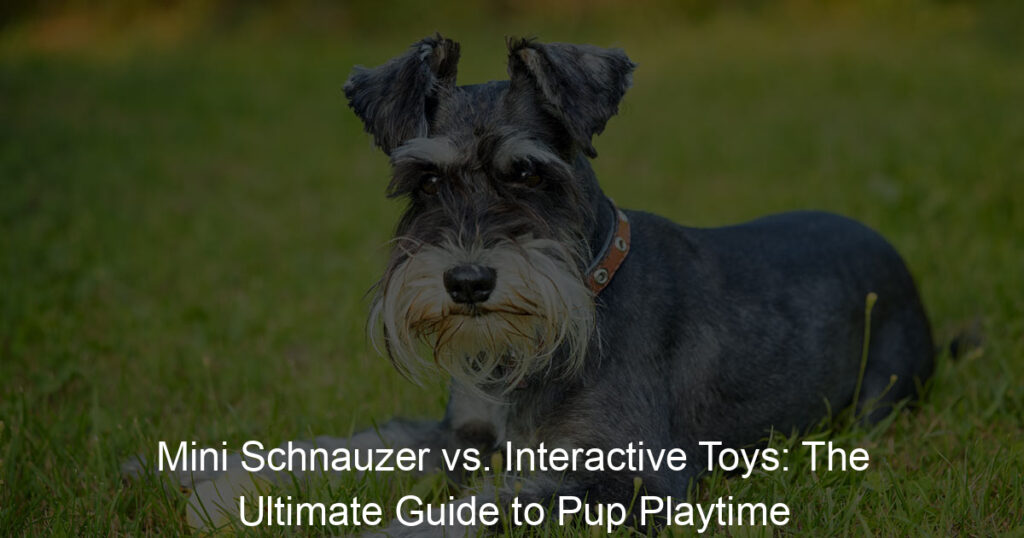Many owners choose to neuter mini schnauzers or castrate them to help with behavior issues such as aggression and excessive barking. But when is the best time to do this?
Ideally, mini schnauzers should be neutered at around six months of age. This is before they reach sexual maturity and can help prevent many unwanted behaviors associated with testosterone. However, it is still possible to neuter older dogs if necessary – your vet will be able to advise you on the best course of action.
The miniature schnauzer is a popular breed of a small dog. Bred in Germany, these dogs were originally used as ratters on farms. They are known for their intelligence, loyalty, and loving personalities.
While miniature schnauzers make excellent pets, they can be quite willful. If you wait too long, you may need help training your dog. If you neuter your mini schnauzer too early, it could lead to health problems later in life.
So when is the best time to neuter a mini schnauzer? The answer depends on several factors, including the dog’s age, health, and behavior.
The Neutering Process: What to Expect
Neutering, also known as castration, is a surgical procedure that removes the testicles from a male dog. Before the procedure, your vet will perform a physical examination and possibly some pre-anesthetic bloodwork to ensure your mini schnauzer is healthy enough for surgery. Your dog will be put under general anesthesia for the procedure. The vet makes a small incision in front of the scrotum and removes the testicles through this incision. After the testicles are removed, the incision is stitched up, and your dog is monitored as it wakes up from anesthesia. Your vet will provide post-operative care instructions, which will include rest and limited activity for a few days.
Potential Complications from Neutering
While neutering is a common and relatively safe procedure, as with any surgery, there are potential risks and complications. These may include infection, bleeding, reaction to anesthesia, or complications from the sutures. Additionally, if a dog is neutered too early, it may potentially be at a higher risk for developing certain orthopedic conditions, such as hip dysplasia, and may have a slightly increased risk of certain types of cancer. It’s important to discuss these potential risks with your vet before deciding to neuter your dog.
How to Care for Your Mini Schnauzer Post-Neuter Surgery
After your mini schnauzer has been neutered, it’s important to provide proper care to ensure a smooth recovery. This includes monitoring the surgical site for signs of infection, such as redness, swelling, or discharge, and contacting your vet if you notice anything unusual. Your vet will likely provide a protective cone or “Elizabethan collar” to prevent your dog from licking or chewing at the incision. Avoid any strenuous activity, including running, jumping, and rough play, for about two weeks after surgery. Be sure to follow all of your vet’s post-operative care instructions, including returning for a follow-up visit to remove the stitches.

Impact of Neutering on a Mini Schnauzer’s Lifespan
There is ongoing debate among veterinarians and researchers about whether neutering affects a dog’s lifespan. Some studies suggest that neutered dogs may live longer due to a reduced risk of developing certain health issues like testicular cancer and prostate problems. However, other studies suggest neutered dogs may have an increased risk of other types of cancer and orthopedic problems. Ultimately, the impact of neutering on a mini schnauzer’s lifespan may depend on many factors, including the dog’s individual health, diet, exercise, and overall care.
Neutering and Its Impact on Your Mini Schnauzer’s Weight
Neutering can potentially affect your mini schnauzer’s weight. After neutering, dogs have a tendency to gain weight more easily due to changes in their metabolism. This is because sex hormones play a role in controlling body weight, and when these are removed through neutering, it can cause an increase in appetite and decrease in energy expenditure. However, weight gain can be managed through a balanced diet and regular exercise. It’s important to monitor your dog’s weight after neutering and consult with your vet about any necessary adjustments to his diet or exercise routine.
Neutering Myths and Misconceptions
There are many myths and misconceptions surrounding neutering. For example, some people believe that neutering will change a dog’s personality. However, while neutering can help reduce certain behaviors driven by hormones, such as aggression or marking territory, it doesn’t change a dog’s fundamental personality. Another common myth is that neutering will cause a dog to become lazy and overweight. While neutered dogs can be prone to weight gain, this can be managed with a proper diet and regular exercise. A dog’s energy level is more likely to be influenced by its age, health, and breed than its neuter status. Finally, some people believe that it’s better for a dog to have one litter before being spayed. However, there is no scientific evidence to support this claim, and in fact, spaying before the first heat cycle can significantly reduce the risk of mammary cancer.
Is Neutering Always Necessary? Alternatives to Consider
While neutering is a common practice, it’s not always necessary for every dog. Some owners choose to keep their dogs intact due to personal beliefs, breeding purposes, or potential health benefits. If you’re not comfortable with neutering your mini schnauzer but want to prevent unwanted behaviors or puppies, there are alternatives to consider. These include using dog diapers or pants, practicing vigilant supervision, and considering non-surgical options like chemical sterilization. Always discuss these alternatives with your vet to find the best solution for your dog.
Understanding the Behavioral Changes Post-Neutering
After neutering, some mini schnauzers may experience changes in behavior due to the decrease in testosterone. This can often result in reduced aggression, decreased tendency to roam, and less marking. However, neutering is not a cure-all for behavioral issues, especially those that are not hormone-driven or are deeply ingrained habits. It’s important to continue with consistent training and socialization. Also remember, any behavioral changes may not be immediate – it can take weeks or even months for hormones to fully leave the dog’s system.
Impact of Neutering on Mini Schnauzer Growth and Development
Neutering can potentially have an impact on a mini schnauzer’s growth and development. When a dog is neutered before it has fully grown, it can cause the growth plates to remain open for longer than they normally would. This can result in the dog growing slightly taller than it might have otherwise. It could also potentially contribute to an increased risk of certain orthopedic issues such as hip dysplasia, although this is still a topic of ongoing research. Therefore, some vets recommend waiting until a dog is fully grown before neutering, particularly in breeds prone to these conditions.
The Social and Environmental Benefits of Neutering Your Dog
Neutering your mini schnauzer has several social and environmental benefits. It helps control the pet population by reducing the number of unwanted puppies. This, in turn, decreases the number of dogs in shelters and reduces euthanasia rates. Neutering also decreases the likelihood of dogs roaming, which can be disruptive to the community and dangerous for the dog. Additionally, neutered dogs are generally less aggressive and less likely to engage in behaviors like marking, which can make them better neighbors.

Understanding the Costs of Neutering Your Mini Schnauzer
The cost of neutering a mini schnauzer can vary depending on various factors, including the vet’s office, the region you live in, and the specific needs of your dog. The procedure typically includes the cost of anesthesia, surgery, and post-operative care. It’s important to discuss the expected costs with your vet prior to the procedure. Some pet insurance plans cover the cost of neutering, or there may be low-cost neutering programs available in your area.
Mini Schnauzer Breed-Specific Health Concerns and Neutering
Like all breeds, mini schnauzers have some specific health concerns. For example, they are prone to certain skin conditions, eye problems, and urinary stones. Neutering can impact some of these health concerns. For instance, neutered dogs have a decreased risk of prostate problems and testicular cancer. However, they may potentially have an increased risk of obesity, which can contribute to other health issues like
diabetes and joint problems. Therefore, it’s important to maintain a healthy diet and regular exercise for your neutered mini schnauzer. It’s also crucial to have regular check-ups with your vet to monitor any potential health concerns.
When Is It Too Late to Neuter a Mini Schnauzer?
There is no definitive age when it becomes too late to neuter a mini schnauzer. In fact, unless there are specific health concerns that would make anesthesia or surgery risky, age is not a significant deterrent for this procedure. Older dogs can still benefit from being neutered, although the behavioral effects may not be as pronounced as in younger dogs. If you’re considering neutering an older mini schnauzer, it’s important to have a thorough health evaluation done by your vet to assess the risks and benefits.
Chemical Neutering: A Non-Surgical Alternative
Chemical neutering is a non-surgical alternative to traditional neutering. It involves injecting a solution into the testicles, which effectively sterilizes the dog by destroying sperm-producing cells. Chemical neutering has been shown to be effective, safe, and less invasive than surgical neutering. It’s also typically cheaper and requires less recovery time. However, this method is not yet widely available and is generally only used in certain circumstances, such as for population control in animal shelters or in regions where surgical neutering is not easily accessible. It’s also worth noting that chemical neutering does not have the same impact on behavior as surgical neutering, as it does not remove the source of testosterone.
The Role of Neutering in Pet Population Control
Neutering plays a crucial role in controlling the pet population. Each year, millions of unwanted dogs and puppies end up in shelters, many of which are euthanized due to a lack of resources. By neutering your mini schnauzer, you’re ensuring that your dog won’t contribute to this issue. Moreover, neutered dogs are less likely to roam and mate with other dogs, reducing the number of stray or feral dogs in the community. Neutering is a responsible choice that helps to protect not only your own pet but also the wider pet population.
When Should a Female Miniature Schnauzer Be Spayed?
The best time to spay a female mini schnauzer is before her first heat cycle. This typically occurs when she is between six and nine months old but can be as early as four months or as late as twelve months.
Spaying before the first heat cycle eliminates the risk of your dog developing pyometra, a potentially life-threatening uterus infection. It also reduces the risk of mammary cancer later in life.
While it is possible to spay older dogs, some risks are associated. The older a female dog is when she is spayed, the higher her chances of developing complications such as urinary incontinence. For this reason, it is generally best to neuter your mini schnauzer at the recommended age.
Please speak to your vet if you have any questions or concerns about neutering or spaying your mini schnauzer. They will be able to advise you on the best course of action for your dog.

What Is the Earliest You Can Neuter a Male Dog?
The age you can neuter a male dog depends on the dog’s size. For toy and miniature breeds, vets typically recommend neutering between 8 and 10 weeks old. For medium-sized breeds, the ideal time to neuter is around 12 to 14 weeks old. And for large breeds, it’s usually best to wait until they’re at least six months old.
There are exceptions to these general guidelines. If your dog has behavior problems that neutering could improve, your vet may recommend surgery sooner.
If your dog is in good health, but you want to wait a little longer before neutering, that’s fine too. The longer you wait, the greater risk of your dog developing health problems later in life.
Can Neuter a Dog Reduce Aggression?
Yes, neutering a dog can often reduce aggression. This is especially true for dogs who are aggressive towards other dogs of the same sex.
Neutering will also usually reduce a dog’s desire to roam, which can help to prevent him from getting into fights with other animals. If your dog is showing signs of aggression, talk to your vet about whether neutering could be a good option for him.
What Are the Benefits of Neutering?
There are many benefits of neutering dogs, including the following:
-Reduced risk of certain types of cancer
-Fewer unwanted puppies
-Less likelihood of roaming and getting lost or injured
-Decreased risk of fighting with other dogs (and getting injured in the process)
-Improved behavior in some dogs (for example, less aggression and fewer urine-marking incidents)
Generally, it is best to wait until your mini schnauzer is at least a year old before neutering him. This gives his body time to develop fully. It also allows him to reach sexual maturity and better understand the consequences of his actions.
However, there are some exceptions to this rule. For example, if your mini schnauzer is experiencing behavior problems, such as aggression or excessive barking, consider having him neutered earlier. This can help to calm him down and make him easier to train.
Additionally, if your dog is sick or has a health condition that hormones, such as testicular cancer, could aggravate, it may be best to have him neutered sooner.
Talk to your veterinarian about the best time to neuter your mini schnauzer. They will be able to take into account all the factors mentioned above and give you tailored advice for your dog.
What Happens if You Neuter a Male Dog Too Early?
If you neuter a male dog too early, he may be more likely to develop certain health problems later in life. For example, he may be at increased risk for joint issues and orthopedic diseases.
He may also be more likely to develop behavioral problems, such as aggression and mounting. Yet, the risk for these problems is relatively low; most dogs will be OK if they are neutered early.
Conclusion
Deciding to neuter your mini schnauzer is a significant choice that can have a variety of impacts on your pet’s health, behavior, and overall quality of life. While neutering offers numerous benefits, such as potentially reducing aggressive behaviors and the risk of certain health issues, it’s important to weigh these advantages against potential drawbacks and risks.
Neutering is not a one-size-fits-all decision, and the ideal timing can depend on various factors, including your dog’s age, health, and individual circumstances. Having an open discussion with your veterinarian is vital in making the best decision for your pet. They can provide you with the most accurate, up-to-date, and personalized advice for your dog’s unique situation.
Moreover, while neutering can help mitigate some behavioral issues, it’s not a substitute for proper training and socialization, which are essential for your mini schnauzer’s well-being and good behavior. In addition, neutering can potentially impact your dog’s weight and growth, so adjustments in diet and exercise may be required post-surgery.
Ultimately, neutering is a responsible choice that contributes to the wider effort of pet population control, reducing the number of unwanted puppies and dogs in shelters. Whether you decide to neuter your mini schnauzer or not, it’s clear that the most important thing is to provide your furry friend with a loving, caring, and healthy environment in which to thrive.














